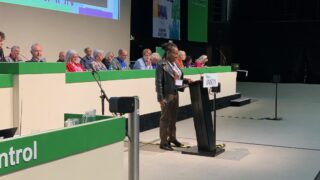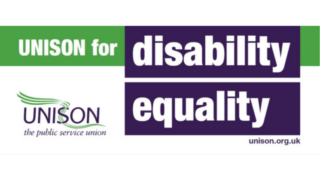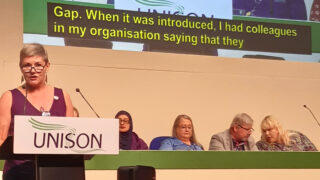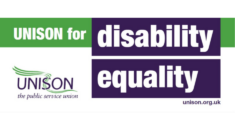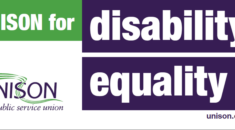The UK government’s response to a House of Lords committee on the Equality Act was “ill-informed”, leaving the committee “disappointed”.
That was one conclusion from Tansy Hutchinson, a guest speaker on day three of UNISON’s disabled members’ conference in Brighton this morning.
Now working on a House of Commons inquiry into the built environment and disabled people, Ms Hutchinson had been invited to talk about her work as a policy analyst for the House of Lords committee on the Equality Act and disability.
The committee a dedicated post-legislative scrutiny committee – something that looks back at legislation around five years after new law comes into effect, to see whether it has achieved what it was intended to achieve.
Such committees call for responses and this committee received one received 140, which is unusually high.
It led to many oral reports – and a first for the House of Lords, when a committee session being held in British Sign Language.
Ms Hutchinson said that the committee had reached a number of major findings.
Prime among these were that the needs of disabled people tend to be an afterthought.
The committee concluded that there needs to be proactive planning – not just adding a ramp to the design of a new building as an afterthought.
Ms Hutchinson described the committee as being “disappointed” with the government’s own response, with it described by chair Baroness Deech as “ill-informed”.
She told delegates that the committee concluded that rights that are unenforceable are not worth having.
In a subsequent debate on the Equality Act and disabled people, conference called on the union to:
- campaign for additional legislation to protect and improve disabled people’s rights;
- lobby for the Equality and Human Rights Commission to be given dedicated resources to support disabled people seeking to enforce their rights;
- call for a strengthening of the public-sector equality duty to at least the same level as the previous disability equality duty;
- write to the prime minister and leader of the opposition requesting that the minister for disabled people be moved from the Department of Work and Pensions to either the Cabinet Office or the Department for Communities and Local Government.
Delegates also noted their concern at the impact the EU referendum result in twould have for the future of the Human Rights Act, which will be easier to scrap when the UK has left the EU.



